Ballymurphy Inquest: Army medic 'asked to plant bullets'
- Published
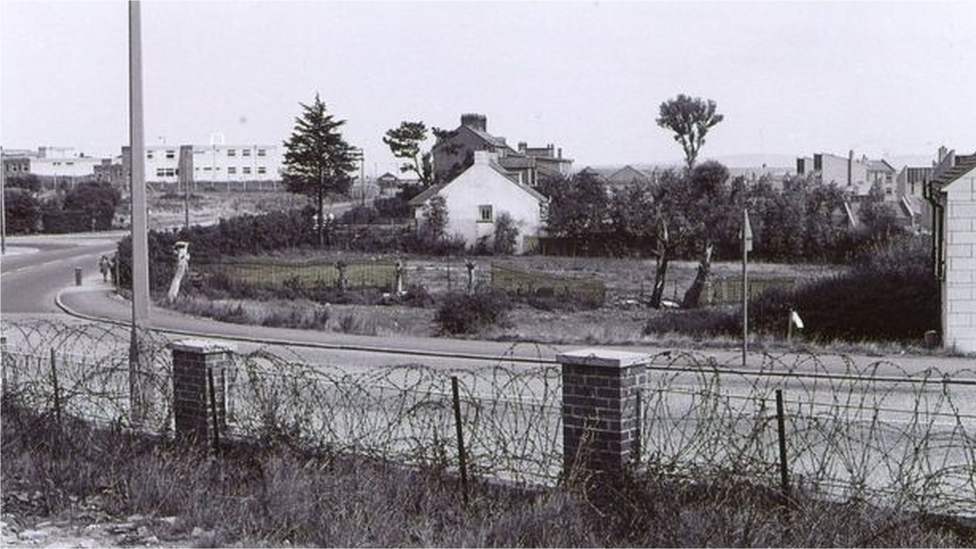
The area opposite the Henry Taggart Hall
A former Army medical assistant has told the Ballymurphy Inquest that an officer asked him to plant bullets on two men he had treated.
Nigel Mumford said an officer he did not recognise asked him to plant bullets on their clothes.
He told the court that he refused to do it and that the bullets were not planted.
Mr Mumford said he did not report the officer at the time because he hoped to leave the Royal Army Medical Corps.
The inquest is looking into the fatal shootings of 10 people in the Ballymurphy area of west Belfast in August 1971.
The shootings occurred amid disturbances sparked by the introduction of internment without trial in Northern Ireland.
Earlier, Mr Mumford told the inquest that he watched the moment soldiers open fire on people at an Army base.
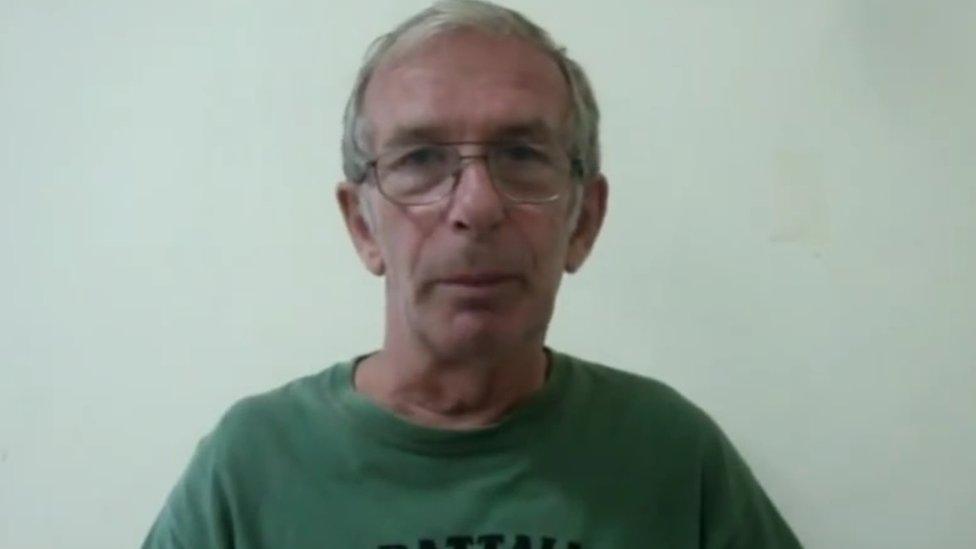
Nigel Mumford told the court his army medical training was basic and just one level above a Boy Scout first aid certificate.
Mr Mumford, who served with 23 Parachute Field Ambulance, attached to B Company 2 Para, was based in the Henry Taggart Hall on the day six people died.
He told the court he treated five casualties brought into the hall.
The witness said he watched Lieutenant M42 take six or seven soldiers outside the base, as it was being attacked with gunfire and by rioters.
Mr Mumford said that with the permission of Major M45, Lieutenant M42 shouted some warnings, and then ordered his men to open fire on the crowd and shoot to kill.
The former corporal described a "fusillade of shots" for about a minute.
He said he did not see the group which had been reported as attacking the base and only heard that they had scattered as some fell wounded or dead.
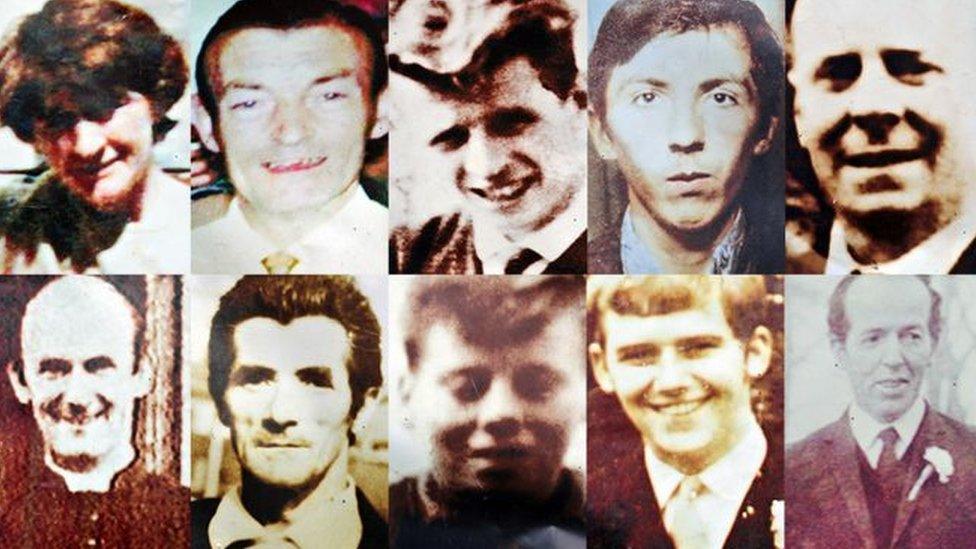
The Ballymurphy victims
A lawyer for the family of one of the victims asked Mr Mumford about the culture of the Parachute Regiment in 1971.
He agreed that at times rubber bullets had been doctored with nails by other soldiers before being fired.
He also described the treatment of men arrested and interned who he said were sometimes tied up and hooded, and pushed around.
"You use Paras to fight wars..." he said. "Not as cheap policemen."
Mr Mumford described the casualties who came into the hall, and said he was frustrated that he couldn't save lives.
During his descriptions the families of those who died were clearly very upset.
He said three casualties were placed in the main hall, including an older man shot in the arm, and a younger man shot in the neck.
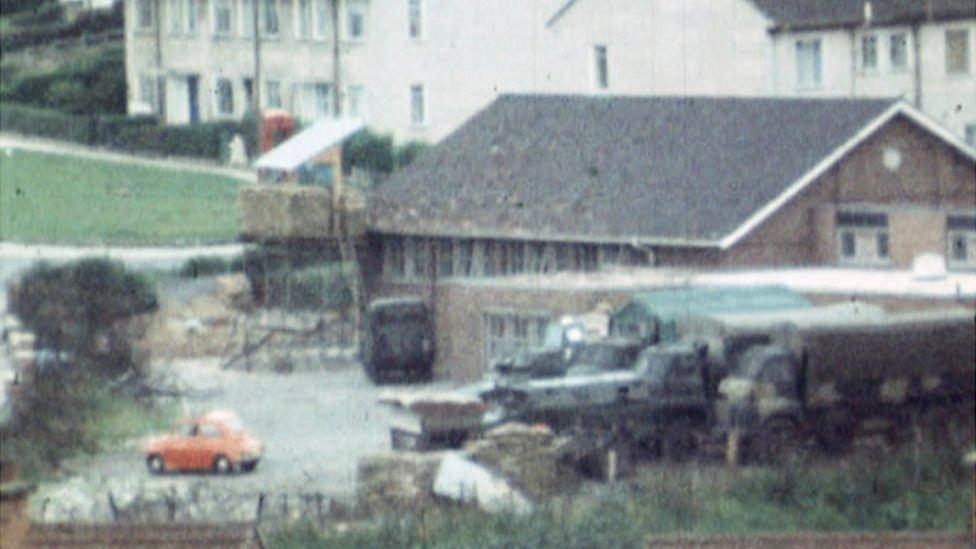
Soldiers from the Parachute Regiment were based at Henry Taggart Army base
He said that he could not remember the injuries of the third man.
Two other men were placed in his medical room, whom he believes to have been Joseph Murphy and Daniel Teggart.
Mr Mumford became angry when he heard that other witnesses had testified that some casualties had been beaten and kicked by soldiers in the hall.
Of one casualty, Davy Callaghan, he said: "Nobody touched that man, nobody kicked that man, nobody violated his human rights.
"What you have heard is perjury from families who want money." he went on.
That comment brought gasps from the next of kin present in court.
'Frustration'
He went on to express his frustration that he was a first aider and not a doctor.
Mr Mumford also remembered trying to resuscitate a man, possibly Noel Phillips, and concluding he must be dead.
He told the court that Daniel Teggart had been shot many times and his lungs were visible.
He said he carried out a procedure as best he could and stabilised his breathing.
He remembered asking other soldiers to apply dressings to the injuries of Joseph Murphy who had been shot in the leg.
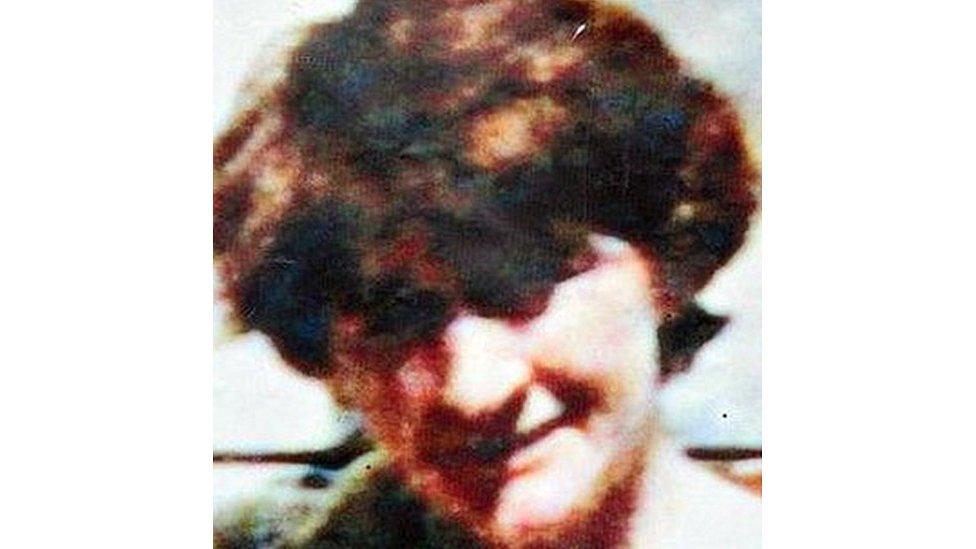
Joan Connolly, a 44-year-old mother of eight, was the only woman shot in the Ballymurphy killings
He said he took a shell dressing off because of swelling and tried to stop the bleeding, before becoming concerned that he might have died.
Mr Mumford told the court he wishes he had left the dressing on because it might have acted as a tourniquet.
Mr Murphy lived for several more days.
Mr Mumford expressed his frustration that poor medical training prevented him from saving lives.
Later he said, he observed the body of Joan Connolly being brought into the base.
Photographs
He told the court that the doctor took photographs of her injuries.
Mr Mumford said such photographs were used to teach and train medical personnel and were often taken.
The former Army medical assistant has written a book about his experiences and has also posted several videos on the internet where he gives his account of what happened.
For this reason he had not requested anonymity like other soldiers who have given evidence to the inquest.
Mr Mumford lives abroad and was giving his video evidence from there. His evidence continues tomorrow.
- Published8 April 2019
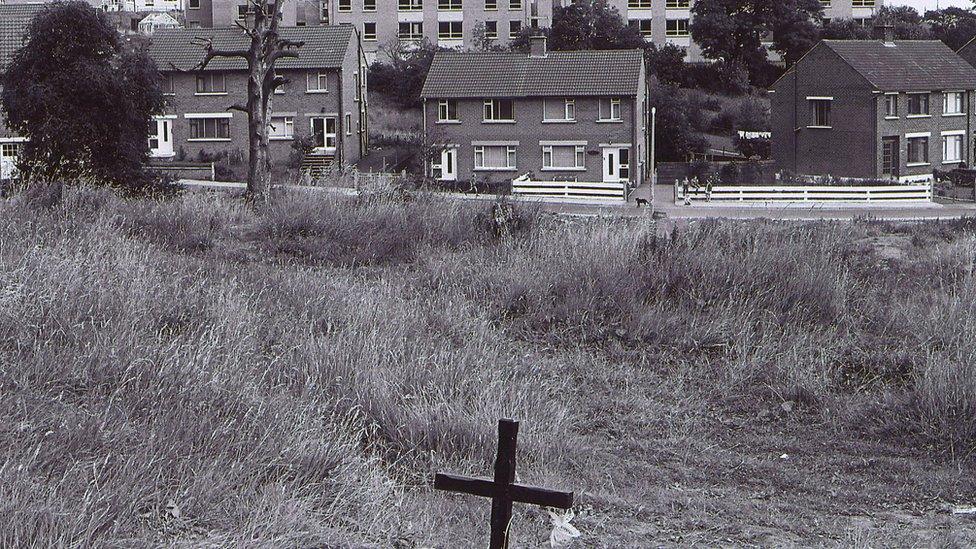
- Published2 April 2019
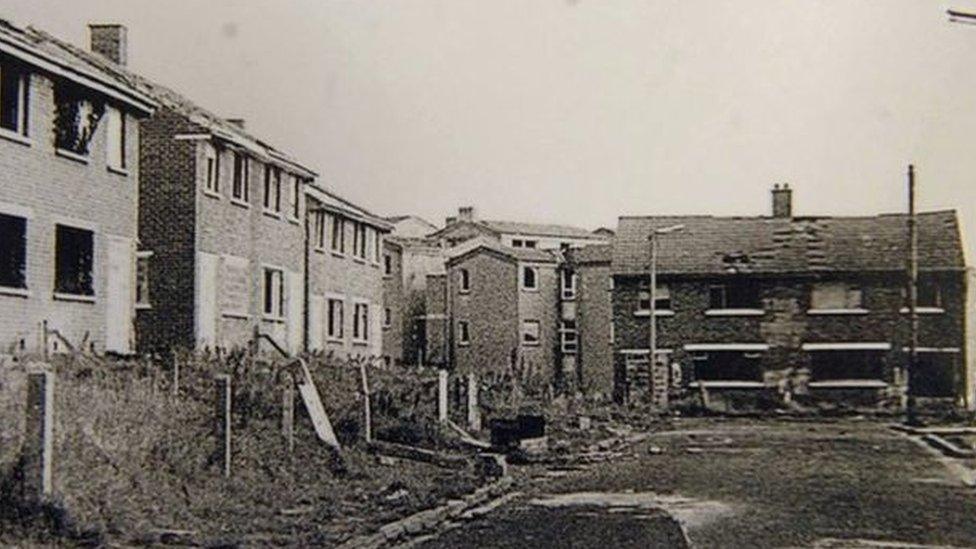
- Published25 February 2019
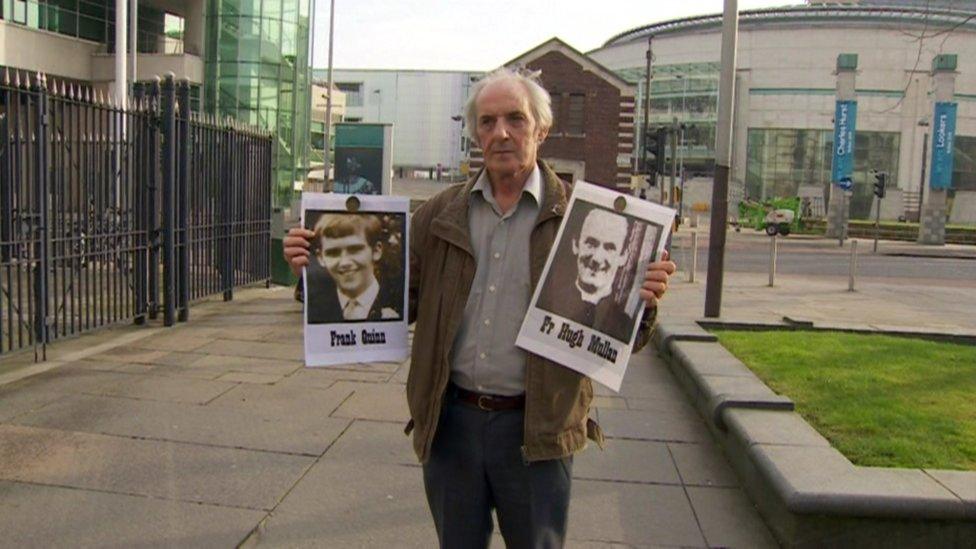
- Published14 February 2019
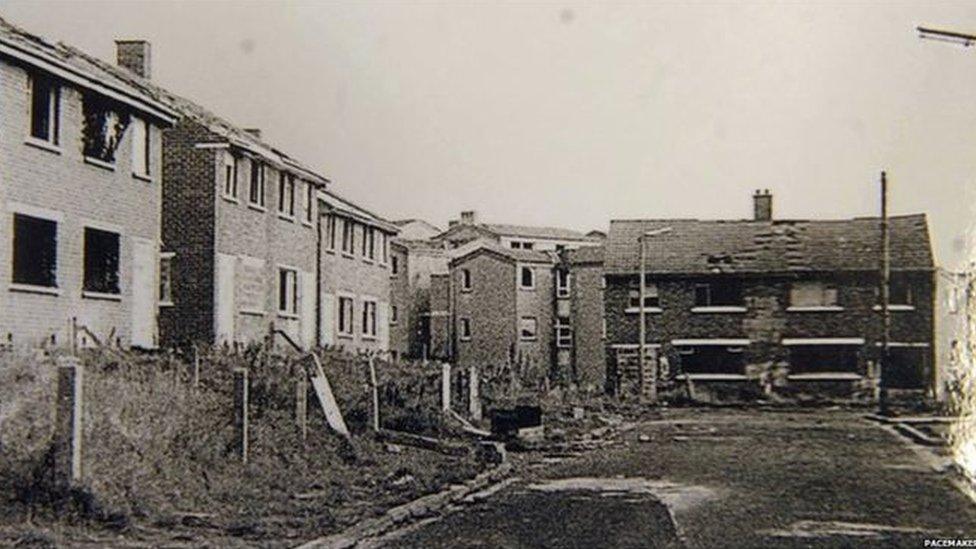
- Published13 February 2019
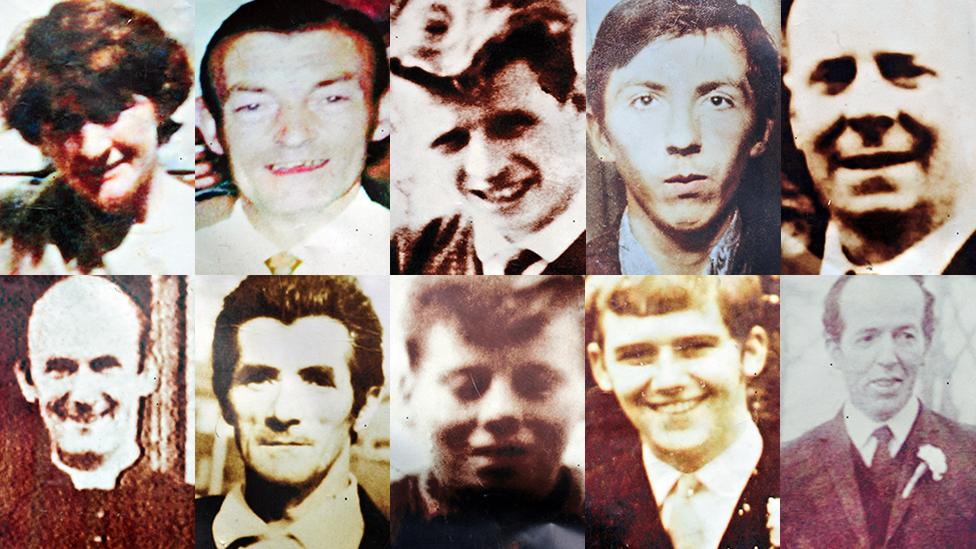
- Published12 February 2019
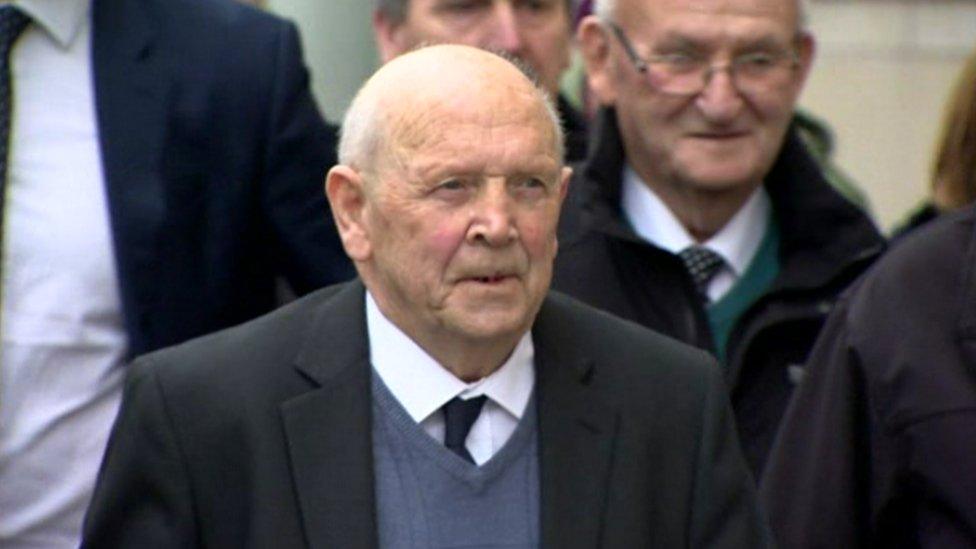
- Published11 May 2021
